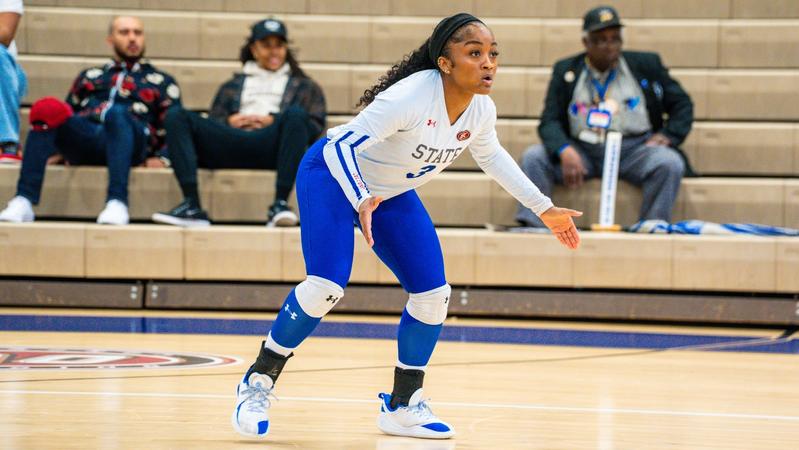Motorsports
Backroads of Appalachia awarded $3.8 million dollar grant
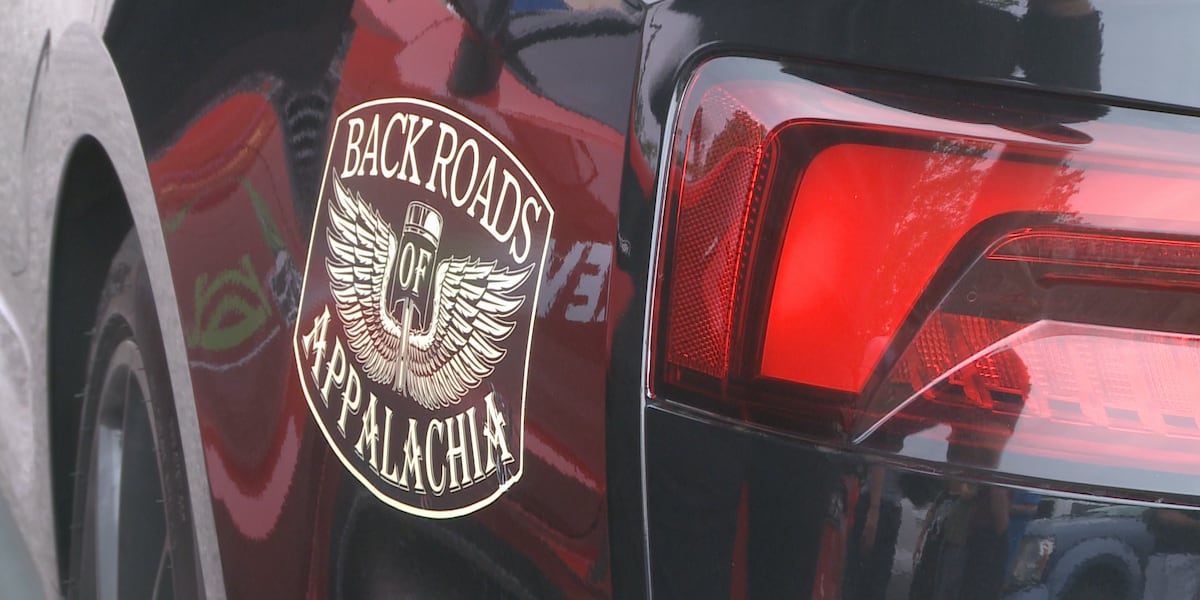
EVARTS, Ky. (WYMT) – Backroads of Appalachia was awarded an ARC ARISE (Appalachian Regional Initiative for Stronger Economies) grant from the Appalachian Regional Commission.
The organization’s goal is to use motorsports tourism to drive sustainable economic revitalization across Eastern Kentucky and Central Appalachia.
The $3,809,250 grant will support the expansion of Backroads of Appalachia’s adventure tourism corridor, connecting rural towns across Kentucky, Tennessee, Virginia, and West Virginia. This funding will be used to develop infrastructure, launch regional workforce training programs, and further promote Appalachia as a motorsports and outdoor recreation destination, with a headquarters located on Sturgeon Creek in Owsley County, Kentucky.
“This is more than a grant—it’s a vote of confidence in the people and potential of Appalachia,” said Erik Hubbard, Founder and Executive Director of Backroads of Appalachia. “We are proud to showcase what happens when grit meets opportunity. With ARC’s support, we’ll build stronger roads—not just asphalt, but pathways to prosperity.”
Among the Backroads of Appalachia initiatives are:
· The build-out of a 199-acre site as a training facility for overland, off-road motocross, and rally car testing and design.
· Over 2,000 square feet of renovated space for training facilities and administrative uses.
· Additional square footage for maintenance workshops and storage.
· Support for RV parking and overnight stays.
· Water and wastewater infrastructure, along with 2,500 linear feet of access roads for emergency services.
For more information, visit www.backroadsofappalachia.org
Copyright 2025 WYMT. All rights reserved.
Motorsports
TOYOTA GAZOO Racing Announces GR Yaris MORIZO RR | Toyota | Global Newsroom

The GR Yaris MORIZO RR is a special-edition model created with Toyota Motor Corporation Chairman and Master Driver Akio Toyoda, aka Morizo, by applying insights gained through the challenge of competing as TOYOTA GAZOO ROOKIE Racing (TGRR) in the 2025 Nürburgring 24 Hours endurance race.
TGR, with its core mission of making ever-better motorsports-bred cars, and ROOKIE Racing, which hones GR vehicles, transcended organizational boundaries and came together based on roles rather than titles under Morizo’s leadership to form TGRR, aiming to further accelerate the making of ever-better cars.
In the Nürburgring 24 Hours, Morizo, as a team driver, took the wheel of the GAZOO Racing Direct Automatic Transmission-equipped No. 109 GR Yaris fielded by TGRR, logging more laps than scheduled despite the course’s grueling conditions. Upon the team’s successful completion of the race, Morizo was quick to convey how good he found the GR Yaris to be, and he credited its 8-speed automatic transmission with enabling him to conquer 15 laps.
The GR Yaris MORIZO RR is exceptional for its Nürburgring-cultivated delivery of car-driver unity for a high level of driver-vehicle interaction, its reliability and security, and its ability to make car-lovers smile and want to keep on driving it.
The GR Yaris MORIZO RR for the Japanese market is to be available in a total of 100 units from spring 2026, with purchasing lottery applications now being accepted via the TGR official smartphone application “GR app”. The model is also to be released in certain European markets in a limited run of 100 units.
Motorsports
Mando Deodorant to Sponsor Josh Bilicki in Seven Races

Mando Deodorant will expand its relationship with NASCAR O’Reilly Auto Parts Series driver Josh Bilicki in 2026, serving as an anchor partner of the No. 07 Chevrolet Camaro for SS-GreenLight Racing.
The company will serve as the primary sponsor of Bilicki’s Chevrolet in multiple events in NASCAR’s second-tier division in 2026, including the season-opener at Daytona International Speedway on February 14.
“Josh [Bilicki] is the kind of racer you want to root for,” said a representative from Mando. “He’s talented, humble, and puts in the work – just like the guys who count on Mando every day. We’re proud to expand our partnership with him in 2026 and to be part of what he’s building with SS-GreenLight Racing. He’s the kind of competitor who keeps fighting when others fade, and that grit is why he’s such a natural fit for Mando.”
Bilicki and Mando first partnered for a one-off last Summer in the NASCAR O’Reilly Auto Parts Series event at Indianapolis Motor Speedway, where the Wisconsin-native picked up a top-20 finish in the No. 91 for DGM Racing.
The 30-year-old driver moved away from his role as the anchor driver for DGM Racing at season’s end, to instead pursue a full-season effort in the No. 07 for SS-GreenLight Racing. Bilicki has worked with the organization previously, but 2026 will mark the first time the two parties have united for a full-season effort.
“I’m extremely excited to welcome Mando as an anchor partner for the 2026 season,” said Bilicki. “Their focus on confidence and performance aligns perfectly with what it takes to compete at this level, and having them on board for seven races, starting at Daytona, is huge for our team.”
Mando Deodorant will also expand its relationship with Bilicki beyond just the NASCAR O’Reilly Auto Parts Series, with the company serving as a partner for the Menomonee Falls, Wisconsin-native in the Chili Bowl Nationals next week in Tulsa, Oklahoma.
Bilicki is a veteran of more than 250 starts across NASCAR’s National Series, having competed in NASCAR since 2016. The lion’s share of those starts, though, have come in the NASCAR O’Reilly Auto Parts Series, where he’s collected four top-10 results — three for DGM Racing and one for Joe Gibbs Racing. Over the last decade, Bilicki has made starts for several organizations, including BJ McLeod Motorsports, RSS Racing, DGM Racing, Joe Gibbs Racing, and SS-GreenLight Racing.
The NASCAR O’Reilly Auto Parts Series campaign will begin at Daytona International Speedway on Saturday, February 14 at 5:30 PM ET on The CW, Motor Racing Network, and SiriusXM NASCAR Radio Channel 90.
Motorsports
An Insider’s Account of NASCAR’s Tabasco Fiasco

What looked like a perfect NASCAR startup, a rising driver, massive funding, and veteran leadership, collapsed almost instantly. The Tabasco-backed Todd Bodine program promised the world, but became one of the fastest implosions of the modern era, leaving chaos in its wake and unexpectedly changing one career forever.
• How did an $8 million per year Tabasco sponsorship unravel before the season even started?
• Why did elite promises like exclusive chassis and top-tier equipment never materialize?
• What red flags during testing exposed deeper problems inside the operation?
• How did missing the Daytona 500 trigger a life-changing opportunity for Jeffrey Baker?
On paper, the team had everything: manufacturer support, high-level personnel, and direct backing from one of the biggest sponsors in the garage. In reality, key deals quietly collapsed, used equipment replaced what was promised, and decision-making behind the scenes raised serious concerns. When the team failed to qualify for the Daytona 500, the entire project effectively imploded under the weight of its own hype. For Jeffrey Baker, the fallout became a turning point. A last-minute move to Penske Racing during Speedweeks led to a career spanning decades, championships, Indy 500 victories, and a permanent place inside one of motorsports’ most successful organizations. One of NASCAR’s biggest sponsor disasters accidentally launched a Hall of Fame-caliber career.
Watch Also
Motorsports
CarBravo delivers affordability and confidence with new 12-month/12,000 mile warranty
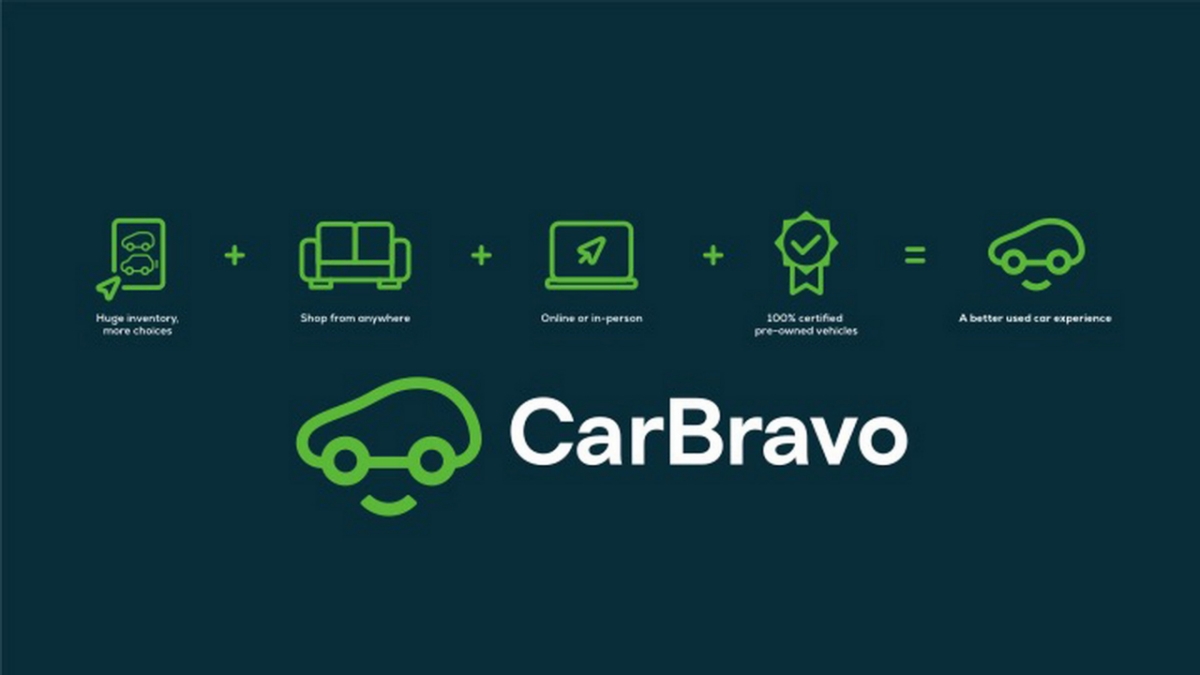
CarBravo delivers affordability and confidence with new 12-month/12,000 mile warranty
2026-01-08
When we created CarBravo, our goal was straightforward: make used car buying and owning more transparent, accessible and predictable.
Now, we’re giving customers more confidence with every vehicle purchased with CarBravo’s standard certification by increasing the warranty coverage from 6-month/6,000-miles* to 12-month/12,000 miles,* whichever comes first. This Bumper-to-Bumper Limited Warranty – with no deductible or added cost – sets a new standard in the used car market. That level of protection helps customers manage the total cost of ownership at a time when affordable vehicle options are at the forefront. Even older, higher-mileage vehicles that fall outside of CarBravo’s standard certification criteria can still qualify for a 30-day/1,000-mile BravoBudget Powertrain Limited Warranty.**
We’ve also included 24-hour roadside assistance and courtesy transportation, because peace of mind and convenience doesn’t stop at the purchase — it’s about keeping customers moving. Even better, unlike many other used car platforms, CarBravo’s warranty repairs are available through GM’s network of over 4,000 dealerships nationwide.
CarBravo is a General Motors program, and that shows up in how we think about quality, transparency and choice. Customers can shop online, in-store or through a seamless combination of both, with access to thousands of vehicles across a wide range of brands and budgets. Every vehicle is inspected, and customers have the information they need to make confident decisions.
In a crowded used-car market, we believe transparency, convenience and protection all go hand-in-hand. CarBravo is designed to deliver on those tenets — and to raise expectations for the customer experience around buying and owning a used vehicle.
*Coverage and terms are different in the State of California. See participating dealer and warranty booklet for limited warranty eligibility and coverage details, including limitations and exclusions. For non-GM vehicles, covered components vary from GM vehicles; please see a participating CarBravo dealer for component coverage details and full terms and conditions.
**CarBravo vehicles that are greater than 10 and less than 15 years old and/or have greater than 100,000 and less than 150,000 miles, are eligible to receive Powertrain Limited Warranty coverage for 30 days or 1,000 miles (whichever comes first).
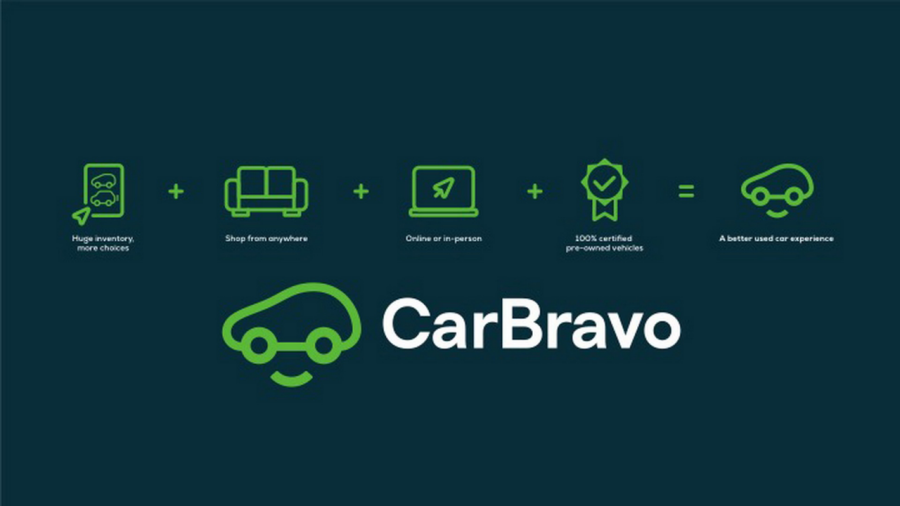
When we created CarBravo, our goal was straightforward: make used car buying and owning more transparent, accessible and predictable.
Now, we’re giving customers more confidence with every vehicle purchased with CarBravo’s standard certification by increasing the warranty coverage from 6-month/6,000-miles* to 12-month/12,000 miles,* whichever comes first. This Bumper-to-Bumper Limited Warranty – with no deductible or added cost – sets a new standard in the used car market. That level of protection helps customers manage the total cost of ownership at a time when affordable vehicle options are at the forefront. Even older, higher-mileage vehicles that fall outside of CarBravo’s standard certification criteria can still qualify for a 30-day/1,000-mile BravoBudget Powertrain Limited Warranty.**
We’ve also included 24-hour roadside assistance and courtesy transportation, because peace of mind and convenience doesn’t stop at the purchase — it’s about keeping customers moving. Even better, unlike many other used car platforms, CarBravo’s warranty repairs are available through GM’s network of over 4,000 dealerships nationwide.
CarBravo is a General Motors program, and that shows up in how we think about quality, transparency and choice. Customers can shop online, in-store or through a seamless combination of both, with access to thousands of vehicles across a wide range of brands and budgets. Every vehicle is inspected, and customers have the information they need to make confident decisions.
In a crowded used-car market, we believe transparency, convenience and protection all go hand-in-hand. CarBravo is designed to deliver on those tenets — and to raise expectations for the customer experience around buying and owning a used vehicle.
*Coverage and terms are different in the State of California. See participating dealer and warranty booklet for limited warranty eligibility and coverage details, including limitations and exclusions. For non-GM vehicles, covered components vary from GM vehicles; please see a participating CarBravo dealer for component coverage details and full terms and conditions.
**CarBravo vehicles that are greater than 10 and less than 15 years old and/or have greater than 100,000 and less than 150,000 miles, are eligible to receive Powertrain Limited Warranty coverage for 30 days or 1,000 miles (whichever comes first).
Motorsports
NASCAR star opens up on reality of sport – ‘I’ve had so many failures’ – Motorsport – Sports

Toni Breidinger has built a growing presence in NASCAR, but behind the highlight reels and rising profile is a reality she says few fans fully understand.
The 26-year-old NASCAR driver recently opened up about the constant uncertainty that comes with trying to survive in a sponsorship-driven sport, admitting that setbacks have been a defining part of her journey.
“I feel like I’ve had so many failures,” Breidinger, who also explained her concerns about working with Victoria’s Secret, said on The Burnouts podcast. “There’s been times where I’ve lost a sponsor right before a race, and I haven’t been able to race, and I was devastated. And then I got like a whole new opportunity after that.”
Breidinger, who competes full-time in the NASCAR Craftsman Truck Series, said those moments often arrive with little warning. Losing funding can mean missing a race altogether, turning months of preparation into a scramble just to stay on track.
“There’s been times even the past few years where I’m like, I don’t have a partner for this race. How am I going to do?” she said.
“And it’s just like a scramble to make it work. I actually have my hands in everything still. I’m very much kind of a control freak. So I’m very involved in all the pitches and everything.”
Sign up to our NASCAR newsletter here.
Breidinger became the first Arab American woman to debut in a NASCAR national series race in 2021, and her visibility has grown rapidly. Across Instagram and TikTok, she has a combined following of roughly five million, with additional reach on Facebook and X that rivals, and in some cases exceeds, established Cup Series drivers.
Even with that audience, Breidinger said sponsorship remains fragile. Early in her career, she relied on cold emails and persistence after moving to North Carolina, long before social media traction became a selling point.
“When I first moved to North Carolina, it was a lot of just cold emails, not much success,” she said. “With my social media at the time, I don’t even think I had 10,000 followers. To me, I was like, I just want 10,000 followers, baby steps.”
Her growth eventually caught the attention of Toyota Motor North America, which signed her through its marketing department rather than its traditional driver development ladder. That partnership gives her access to Toyota’s performance resources, including training, nutrition support and simulator time, but it doesn’t remove the pressure to constantly secure race-by-race backing.
On track, Breidinger has delivered results. In 65 ARCA Menards Series starts, she posted 27 top-10 finishes, the most by a female driver in series history, along with four top fives and a fourth-place finish in the 2024 standings.
“I feel like it’s hard because I’m just being in a male-dominated space, you want to be respected,” Breidinger said. “I’ve always been cautious about how I present myself.”
Motorsports
Keselowski to miss Clash, LaJoie to fill in

CONCORD, N.C. — Brad Keselowski will miss the Clash at Bowman Gray Stadium and Corey LaJoie will fill in for him, RFK Racing confirmed to TRE.

Keselowski will miss the Feb. 1 preseason exhibition race due to a leg injury sustained while skiing with his family in December. LaJoie will drive his No. 6 Ford in his absence.
LaJoie recently raced for Rick Ware Racing — a team closely aligned with RFK — in 2025. He previously filled in for a NASCAR Cup Series champion in 2023 when he drove Hendrick Motorsports’ No. 9 Chevrolet at World Wide Technology Raceway Gateway after NASCAR suspended Chase Elliott.
Keselowski is likely to be ready in time for the season-opening Daytona 500, set for Feb. 15. The 2012 NASCAR Cup Series champion is set to make his 17th start in the race. While he has won the Daytona summer race, he has never won the Daytona 500 before.
More NASCAR and motorsports news from the racing experts
Discover more from The Racing Experts
Subscribe to get the latest posts sent to your email.
Jonathan Fjeld is the co-owner of the The Racing Experts, LLC. He has been with TRE since 2010.
A Twin Valley, MN, native, Fjeld became a motorsports fan at just three years old (first race was the 2002 Pennsylvania 500). He worked as a contributor and writer for TRE from 2010-18. Since then, he has stepped up and covered 24 NASCAR race weekends and taken on a larger role with TRE. He became the co-owner and managing editor in 2023 and has guided the site to massive growth in that time.
Fjeld has covered a wide array of stories and moments over the years, including Kevin Harvick’s final Cup Series season, the first NASCAR national series disqualification in over 50 years, Shane van Gisbergen’s stunning win in Chicago and the first Cup Series race at Road America in 66 years – as well as up-and-coming drivers’ stories and stories from inside the sport, like the tech it takes for Hendrick Motorsports to remain a top-tier team.
Currently, he resides in Albuquerque, N.M., where he works for KOB 4, an NBC station. He works as a digital producer and does on-air reports. He loves spending time with friends and family, playing and listening to music, exploring new places, being outdoors, reading books and writing among other activities. You can email him at fjeldjonathan@gmail.com
-

 Sports2 weeks ago
Sports2 weeks agoBadgers news: Wisconsin lands 2nd commitment from transfer portal
-

 Rec Sports6 days ago
Rec Sports6 days agoFive Youth Sports Trends We’re Watching in 2026
-

 Sports3 weeks ago
Sports3 weeks agoIs women’s volleyball the SEC’s next big sport? How Kentucky, Texas A&M broke through
-

 Rec Sports3 weeks ago
Rec Sports3 weeks agoNBA, Global Basketball Community Unite for World Basketball Day Celebration
-
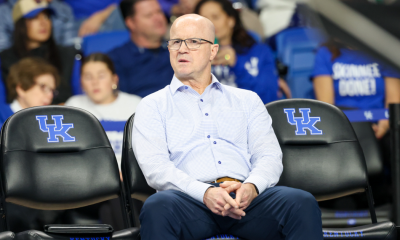
 Sports2 weeks ago
Sports2 weeks agoKentucky VB adds an All-American honorable mention, loses Brooke Bultema to portal
-
Rec Sports3 weeks ago
Inside the NWSL’s first combine: Can the league create a more robust pathway for American talent development?
-

 Motorsports2 weeks ago
Motorsports2 weeks agoBangShift.com IHRA Acquires Historic Memphis Motorsports Park In Millington Tennessee. Big Race Weekend’s Planned For 2026!
-

 Motorsports3 weeks ago
Motorsports3 weeks agoNASCAR, IndyCar, and F1 Share These Race Days in 2026
-
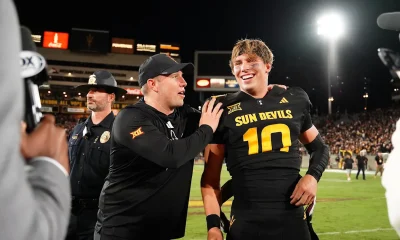
 NIL3 weeks ago
NIL3 weeks ago$2.1 million transfer portal QB predicted to join College Football Playoff team
-

 Sports1 week ago
Sports1 week agoH.S. INDOOR TRACK & FIELD: GLOW region athletes face off at Nazareth University | Sports




































